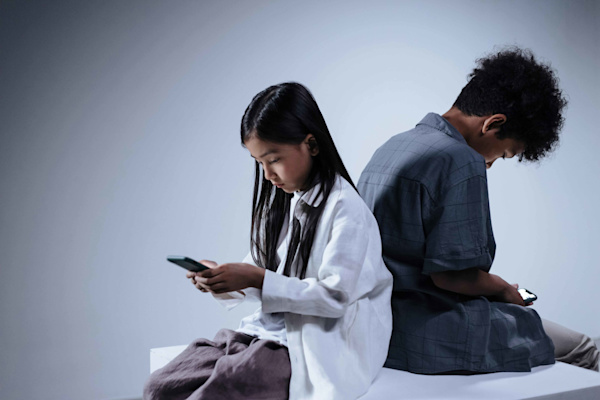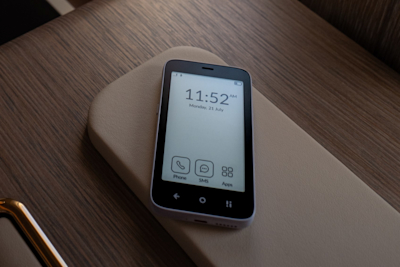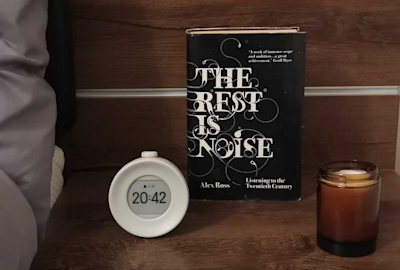
Is Technology Connecting Us or Making Us Lonely?
Why Are We So Lonely When We’re Never Alone (Online)?
We live in a world where connection is only a tap away, yet loneliness has quietly become one of the most pressing public health issues of our time.
In June 2025, the World Health Organization released a groundbreaking report warning that 1 in 6 people globally experienced loneliness between 2014 and 2023, with loneliness contributing to over 871,000 deaths per year. The report recognizes social health as an essential pillar of overall well-being, equal in importance to physical and mental health.
As the report highlights, digital technology is now rapidly reshaping how we interact. While tools like messaging apps and social media can support connection, they can just as easily fuel disconnection, especially when they replace meaningful communication or lead to negative online experiences.
These findings align with growing research from universities and public health experts. Despite being constantly plugged into group chats, social feeds, and streaming platforms, many people report feeling more isolated than ever.
So, what’s really going on?
The Paradox of Constant Connectivity
On the surface, technology appears to connect us. Messaging apps let us chat in real time, social platforms promise closeness with distant friends, and algorithms deliver endless entertainment. However, increasingly, researchers are finding that the form of connection matters just as much, if not more than the frequency and how easily we can connect.
A study by Harvard researcher Laura Marciano found that, even during school holidays when teens were actively using social media, over 50% reported no meaningful interaction in the previous hour, neither online nor in person. They were surrounded by digital content but lacked emotional connection.
This isn’t limited to adolescents. Adults, too, are falling into what might be called a connected solitude, the illusion of closeness without the substance.
How Tech Habits May Be Fueling Loneliness
Researchers have identified several behaviors that contribute to this modern loneliness loop:
Social comparison on social media: When users scroll through curated, filtered versions of others’ lives, it’s easy to feel like you’re falling behind. Over time, this can chip away at self-esteem and increase feelings of disconnection.
Texting over talking: Text messages are convenient, but they strip away tone, facial expression, and spontaneous laughter. Those are all the ingredients of true intimacy. Overreliance on texting can make even close friendships feel distant.
Passive consumption: Binge-watching, doomscrolling, and autoplay algorithms can absorb hours of our time without real engagement. These habits may numb loneliness temporarily, but often leave us feeling even more isolated afterward.
Low-maintenance relationships and the illusion of connection: Social media encourages what can be best described as low-maintenance relationships, quick likes, emoji reactions, or one-line comments that feel like engagement but lack emotional substance. This creates a false sense of connection. Scrolling through someone’s updates gives the impression that you’re “keeping in touch,” when in reality, you’re just consuming content. The result? You may feel as if you’re present in someone’s life, but you’re not truly participating in it. Over time, these shallow interactions can erode the motivation to reach out in meaningful ways, reinforcing feelings of isolation, even as your feed is full of familiar faces.
Why Messaging Isn’t Always Meaningful
While texting has become the default for staying in touch, especially among younger generations, it may not provide the emotional resonance we really need. Research led by Dr. Laura Marciano at Harvard found that even during peak social media use, teens often reported having no real interaction, not even online.
Many of these interactions were happening through short, typed messages, which lack the tone, timing, and emotional cues that help us feel seen and heard. In fact, Marciano found that only about 2 percent of teens used video calls, even though those are far more likely to foster authentic connection.
As she put it in a New York Times article:
“How can you feel on the same frequency with someone if you don’t communicate properly?”
This sentiment was echoed by former U.S. Surgeon General Dr. Vivek Murthy, who noted the emotional difference between a text and a phone call:
“I can’t underscore just how powerful it is to have a few moments of authentic interaction with somebody where you can hear their voice and see their face.”
At Mudita, we believe in supporting that deeper kind of connection. Whether that’s a real conversation over a call, a voice message instead of a quick emoji, or simply being present for someone without distractions, the way we communicate matters.
The Importance of Authentic Interaction
The good news? The antidote to digital loneliness isn't necessarily ditching all tech altogether (although a good digital detox can go a long way), but choosing tech that supports rather than replaces real connection.
Voice calls, video chats, and face-to-face conversations continue to rank highest in terms of emotional fulfillment. Sharing a laugh in person or hearing the warmth in a loved one’s voice still carries immense psychological weight, something that emoji-filled texts simply can’t replicate.
For years, Mudita has maintained that the way we design and use technology directly impacts our mental and emotional well-being. That’s why our products focus on intentionality over digital overload.
A More Mindful Approach to Connection
Mudita Kompakt, our newest, minimalist E ink phone, was created with this philosophy in mind. Unlike traditional smartphones designed to capture as much of your attention as possible, Mudita Kompakt emphasizes only the essential tools, cutting out the noise. There are no social media apps, no autoplay videos, and no algorithmic distractions. What you’re left with is a phone that respects your time, and most importantly, your relationships.
Features like Offline+ Mode, dual SIM cards, and offline maps make it a powerful travel companion, especially for those seeking more present and intentional moments, whether on vacation or in everyday life.
However, perhaps, its most important benefit is what it doesn’t do: it doesn’t pull you into the comparison trap, it doesn’t encourage endless scrolling, and it doesn’t interrupt your conversations with constant pings.
By reducing the noise, it makes space for what really matters: authentic connection.
Reclaiming Real-World Connection
Loneliness is a complex issue, with no single cause and no one-size-fits-all solution. However, if technology has helped create the conditions for widespread isolation, then a more mindful relationship with our devices can be part of the path forward.
Here are a few steps to consider:
Reflect on how certain apps make you feel. If you walk away from social media feeling worse, consider taking a break or unfollowing accounts that trigger comparison.
Replace some text conversations with voice notes or calls. Hearing someone’s voice adds warmth and nuance to communication.
Be intentional about when and how you use your phone. Try setting limits on screen time, or schedule time in Offline mode to reconnect with the world around you.
Use tech as a tool, not a substitute. Let it support your relationships, not replace them.
At Mudita, we’re not anti-technology. We’re pro-meaningful technology, by creating tools that empower you to live more fully, connect more deeply, and spend your time with purpose.
Because in the end, it's not about how many people you follow online. It’s about how connected you feel, to others, to yourself, and to the present moment.
Related stories

Phones Without Constant Internet Access: Kompakt vs. The Rest
Explore why phones without constant internet access are going mainstream, and how Mudita Kompakt stands out with mindful design, flexibility, and user choice.

Mudita’s Community-Curated Wintertime Reading List
Slow down this winter with our community-curated reading list from the Mudita Forum Community, featuring books on well-being, focus, simplicity & mindful tech.

5 Things Sleep Experts Say We Still Get Wrong About Sleep
Are you making these 5 sleep mistakes? Learn what experts say about sleep trackers, workout timing, and why hitting snooze makes you feel worse, not better.
If you'd like to receive the best stories from our blog, keep up to date with our progress and get notified about our product releases and special discounts.